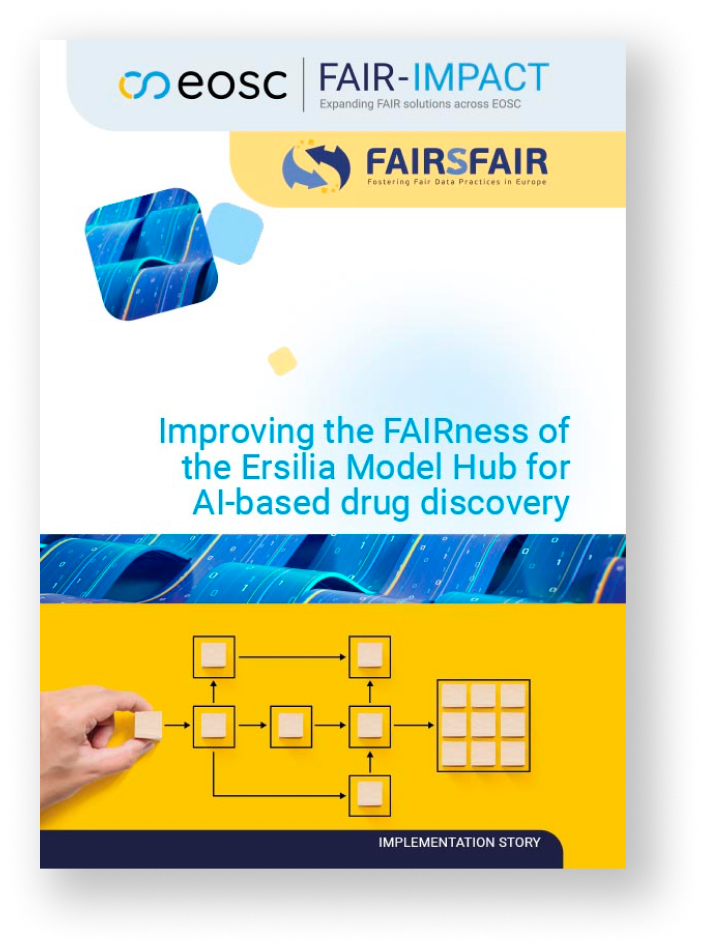Improving the FAIRness of the Ersilia Model Hub for AI-based drug discovery
Software plays a crucial role in academic research, not only as a tool for data analysis but also as a research outcome or result, or even the object of research itself. FAIR (Findable, Accessible, Interoperable, Reusable) research software can increase the transparency, reproducibility, and reusability of research. For this to happen, software needs to be well-described (by metadata), inspectable, documented and appropriately structured so that it can be executed, replicated, built upon, combined, reinterpreted, reimplemented, and/or used in different settings. The FAIR4RS Principles aim to guide software creators and owners on how to make their software FAIR. FAIR-IMPACT offered two support actions designed to enhance the FAIRness and impact of research software:
- Assessing and improving existing research software using a new extension of F-UJI which implements some of the metrics for automated FAIR research software assessment.
- Implementing the Research Software MetaData (RSMD) guidelines for better archiving, referencing, describing, and citing research software artefacts.
This FAIR Implementation Story outlines the specific aims and actions of The Ersilia Open Source Initiative in relation to their participation in one or both support actions.
"Research software developers in the open-source space often have limited time and resources to devote to maintaining and improving their tools. But with a bit of support from actions like the FAIR-Impact, or organisations like the Software Sustainability Institute and the Netherlands eScience Center, developers can set out a blueprint for their projects with easy-to-implement actions that will improve the FAIRness of their software, and, in turn, increase the number of users, scientific citations and even funding available to maintain it. In our learning, once a basic FAIR structure has been decided (for example, which files are needed in the root of the repository and what minimal information must they contain) it is easy to replicate and extend to several software projects."
Supported applicant: Dhanshree Arora, Miquel Duran-Frigola, Gemma Turon, Ersilia Open Source Initiative
